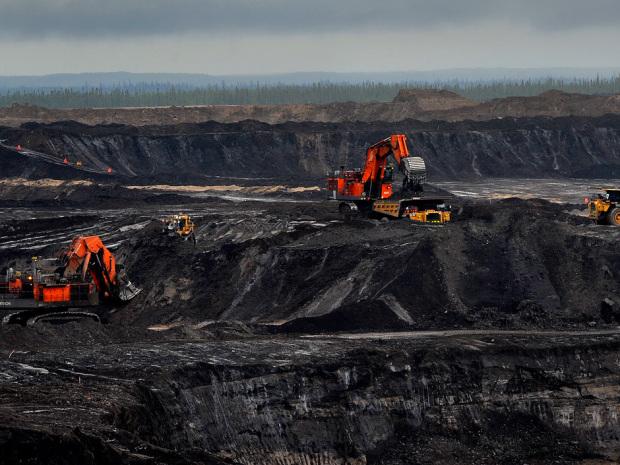
CANADA SLOWER GROWTH

Canada's crude oil output will continue to grow over the long term but at a slower pace than previously projected, reflecting many project postponements resulting from the slump in oil prices, the country's main energy trade group says.
The Canadian Association of Petroleum Producers on Tuesday said it expects Canadian crude output—mostly from Alberta's oil sands—to reach 4.96 million barrels a day by 2025. That forecast is less than the previous estimate of 5.6 million barrels a day and the 6.0 million barrels a day it had forecast back in 2013.
The latest projection, though, is still higher than the current rate of 3.89 million barrels a day that the CAPP projects for crude output this year on capital spending of 45 billion Canadian dollars ($36.3 billion). That is slightly above last year's output of 3.74 million barrels a day and a 40% drop in spending.
The lower forecast is the latest sign of a global retrenchment in oil and gas investment that has hit the most expensive forms of extraction the hardest, including oil sands and shale oil production in North America.
For Canada, the slower growth may impact the broader economy since energy is one of the primary drivers of exports and overall economic growth. "It's almost exclusively driven by the lower crude price," CAPP Vice President Greg Stringham said of the revised growth forecast.
Crude-oil prices have fallen by more than a third from peak levels a year ago due to a global supply glut. The price on the New York Mercantile Exchange for U.S. oil futures for July delivery rose $2.00, or 3.4%, on Tuesday to $60.14 a barrel. That was, nonetheless, down from around $105 a barrel this time last year.
The bulk of expected output gains will come from the oil sands of northern Alberta, which accounted for 2.16 million barrels a day last year and are expected to produce 3.51 million barrels a day by 2025, it said. Conventional oil production last year in Canada was 1.49 million barrels a day, and CAPP expects that to decline to 1.45 million barrels a day over the next decade.
The pace of Canadian production growth isn't expected to slow much over the next five years, given the long-term production profile of oil sands development and the huge upfront investments many companies have already made. That sets it apart from shale oil and more conventional production.
CAPP said it sees production rising to 4.64 million barrels a day over the next five years, which is unchanged from its previous estimate. "There's much more momentum in oil sands. The slowing in the growth of production is five years out" or longer, CAPP's, Mr. Stringham said.
A year ago, rapidly escalating construction costs, not tumbling oil prices, were Canadian producers' biggest worry, prompting some to shelve capital intensive investments in oil sands projects. The drop in oil prices forced another and much larger round of deferments targeting future oil sands production.
Most of the country's largest oil sands operators, including Suncor Energy Inc., Canadian Natural Resources Ltd., Cenovus Energy Inc. and the Canadian units of Exxon Mobil Corp. and Royal Dutch Shell PLC, announced plans earlier this year to indefinitely postpone planned oil sands investments.
In an sign those oil sands project deferments may cast a long shadow, CAPP also cuts its 15-year growth projections for a second consecutive year. It now expects total Canadian output to reach 5.33 million barrels a day in 2030, down from its projection last year for 6.4 million barrels a day by then and a 2013 estimate for 6.7 million barrels a day.
CAPP, which is the industry's leading lobby group in Canada, called for increased pipeline and crude-by-rail capacity to ease bottlenecks that threaten to further slow the pace of growth if more Canadian oil can't get to global markets.
wsj.com





